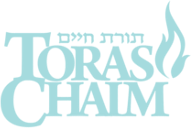Lord Balfour, Rav Kook and the Torah
As UNESCO was busy passing its second resolution in a month denying the Jewish origins of the Temple Mount (Har HaBayit), the Jewish people were preparing for the Succos festival and decorating their Succos with beautiful and colorful posters featuring scenes of the Western Wall and Har HaBayit. We were given the opportunity to witness and to be a victim of the blatant denial of our history and our deepest longings for the future.
How could this happen?
Rashi opens his commentary on the Torah by citing a Midrashic explanation as to why the Torah begins with the story of creation and the ensuing generations:
“’He (G-d) told His people the power of His works in order to grant them the portion of nations (Psalms 111:6).’ If the nations of the world will one day accuse us of being thieves for having taken the land of the seven nations, we shall be able to tell them that the entire world belongs to G-d; He created it and gave it to whom He saw fit. It is He Who chose to take it from them and give it to us.”
Many have questioned how teaching us this information in the Torah would have any sway on the nations of the world. They have therefore suggested that Rashi’s intention is to underscore that we are most at risk when we ourselves are unconvinced of the rightness of our claims.
We can deepen our appreciation of both Rashi’s ancient idea and our contemporary reality by considering a vivid image drawn by Rav Avraham Yitzchak HaKohein Kook z”l, in a different context.
The occasion was a eulogy that Rav Kook delivered in May of 1930, on the occasion of the passing of Lord Arthur James Balfour, author of the 1917 declaration in which the British government recognized our right to a national home in Eretz Yisrael. Rav Kook – who had himself lobbied for the declaration during the years he served as a Rav in London – attributed Lord Balfour’s recognition of the Jewish claim to Eretz Yisrael to the power of Scripture:
“The Tanach (Bible) and its influence – both welcomed and unwelcomed – on humanity and its spirit, is what created for us both the Declaration and its author. (The Tanach) has formulated the redemptive word, and has given us the most pious of those amongst the nations, of whom the most exalted in our time was Lord Balfour. The Torah, the Tanach as a whole, is that scroll that the prophet Yechezkel saw in his vision (Yechezkel 2:10), a scroll inscribed on both front and back.”
In invoking the metaphor of Yechezkel’s scroll, Rav Kook goes on to distinguish between an inner reading and an outer reading of the Torah and sees this as underscoring the uniquely Jewish connection to the Bible. The Jew, reading the front of the scroll, is privileged to have been granted the insider’s access to the fullest meaning of the Torah, both written and oral. To him, the Torah becomes the Book of Life, serving as the source of an inner vitality informed and inspired by G-d’s word and spirit. On the other hand, those not granted entry into the inner world of Torah and who may read only the backside of the scroll, can nevertheless see its story and to recognize and respect its majesty, holiness and truth, albeit from the outside.
If one writes in pencil on a piece of paper, it can only be seen by one who looks at the written side. But if one writes in the bold strokes of a calligrapher, the writing will be visible on the outside as well. Thus, concluded Rav Kook, it is to the extent that we, the Jewish people, make our inner world of Torah bold and clear, it is to that extent that its story will be visible and appreciated by those outside:
“We must recognize that our power is derived from the degree to which we are nourished by the inside of that scroll. To the extent that we – as we revive our nation in our land – more sharply highlight and illuminate the inner word of our sacred scroll in our lives and aspirations, it is to that extent that its letters will be clearly visible on the outside, to the nations of the world. This is what will enhance the power of that Declaration over the objections of all who are fighting against it.”
The outside of the scroll is all that is visible to the world as a whole. If our reading and living of the Torah is pale and faint, others will see nothing of it. UNESCO will continue to pass resolutions ignoring our story, and the Palestinians will commemorate the centennial of the Balfour declaration by suing Great Britain for an apology and damages. But if we make the words of the Torah bold, bright and vibrant in our lives, the story of the world as told by the Torah will shine through, and inform and enlighten the world around us to our birthright.
G-d taught us His powerful Word to grant us the respect of nations, and title to our Holy Land.
